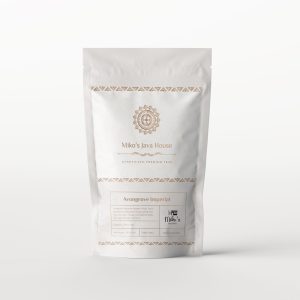Subtotal: $82.28
Add $417.72 to cart and get free shipping!
Free Shipping on All Orders Over $750
Subtotal: $82.28
Add $417.72 to cart and get free shipping!
Free Shipping on All Orders Over $750
Health Benefits of Drinking Coffee: Myths vs Science – What 2025 Research Really Shows
For decades, coffee has been caught in a whirlwind of conflicting health claims. One day it’s a dangerous stimulant to avoid, the next it’s a superfood packed with life-extending benefits. So what’s the truth? Is coffee healthy, and should you feel guilty about your daily coffee habit?
The answer might surprise you. Modern scientific research has dramatically shifted our understanding of coffee’s impact on human health. Far from being the villain it was once portrayed as, coffee has emerged as one of the most potent sources of antioxidants in the Western diet, with studies linking moderate consumption to reduced risks of several serious diseases.
In this evidence-based guide, we’ll separate coffee myths and facts, explore the genuine health benefits of coffee supported by peer-reviewed research, and provide clear guidelines for daily coffee consumption. Whether you’re a devoted coffee lover looking for validation or a health-conscious individual wondering if you should start drinking coffee, this comprehensive analysis will give you the scientific facts you need to make informed decisions.
We’ll examine everything from coffee’s impressive antioxidant profile to its effects on heart health, brain function, and longevity. More importantly, we’ll address when coffee consumption might not be appropriate and how to maximize the health benefits while minimizing potential risks.
Chapter 1: The Scientific Revolution in Coffee Research
From Demonized to Celebrated: A Brief History
The perception of coffee’s health effects has undergone a remarkable transformation. In the 1970s and 1980s, early studies linked coffee consumption to various health problems, leading many health professionals to recommend avoiding it entirely. However, these early studies often failed to account for confounding factors like smoking, which was much more common among coffee drinkers at the time.
Modern Research Methods and Findings
Today’s research employs more sophisticated methodologies, larger sample sizes, and better controls for lifestyle factors. The results have been consistently positive, with major health organizations like the American Heart Association and the World Health Organization acknowledging coffee’s potential health benefits.
The Antioxidant Powerhouse
One of the most significant discoveries about coffee and antioxidants is that coffee is the single largest source of antioxidants in the average American diet. A typical cup of coffee contains hundreds of bioactive compounds, including:
- Chlorogenic acids: Powerful antioxidants that may help regulate blood sugar
- Caffeic acid: Anti-inflammatory compounds
- Quinides: Formed during roasting, these contribute to coffee’s antioxidant activity
- Trigonelline: May have antibacterial and anti-adhesive properties
Chapter 2: Proven Health Benefits of Coffee – What Science Says
Cardiovascular Health: Protecting Your Heart
Contrary to old beliefs about coffee causing heart problems, extensive research shows that moderate coffee consumption may actually protect cardiovascular health.
Key Cardiovascular Benefits:
- Reduced Risk of Heart Disease: A 2013 meta-analysis of 36 studies found that moderate coffee consumption (3-4 cups daily) was associated with a 20% reduced risk of cardiovascular disease.
- Lower Stroke Risk: Research published in the American Journal of Epidemiology found that coffee consumption was linked to a 17% reduced risk of stroke.
- Improved Endothelial Function: The antioxidants in coffee help maintain healthy blood vessel function.
- Blood Pressure Effects: While coffee can cause short-term increases in blood pressure, long-term studies show no increased risk of hypertension in regular coffee drinkers.
Brain Health and Cognitive Function
The health benefits of coffee extend significantly to brain health and cognitive performance.
Neurological Benefits Include:
- Enhanced Cognitive Performance: Caffeine blocks adenosine receptors, reducing fatigue and improving focus, memory, and reaction time.
- Neuroprotection: Studies suggest coffee consumption may reduce the risk of neurodegenerative diseases like Alzheimer’s and Parkinson’s.
- Mood Enhancement: Moderate coffee consumption is associated with reduced risk of depression and suicide.
Liver Health: Coffee as a Liver Protector
One of the most well-established health benefits of coffee is its protective effect on the liver.
Liver Protection Benefits:
- Reduced Risk of Liver Disease: Coffee consumption is associated with lower rates of liver fibrosis, cirrhosis, and liver cancer.
- Protection from Non-Alcoholic Fatty Liver Disease: Studies show coffee drinkers have significantly lower rates of NAFLD.
- Lower Liver Enzyme Levels: Regular coffee consumption is linked to healthier liver enzyme profiles.
Diabetes Prevention and Blood Sugar Control
Research consistently shows that coffee consumption may help prevent type 2 diabetes and improve insulin sensitivity.
Diabetes-Related Benefits:
- Reduced Type 2 Diabetes Risk: Each additional cup of coffee per day is associated with a 7% reduction in diabetes risk.
- Improved Insulin Sensitivity: Chlorogenic acids in coffee may help regulate blood sugar levels.
- Weight Management Support: Caffeine can boost metabolism and support weight management efforts.
Chapter 3: Coffee Myths Debunked – Separating Fact from Fiction
Myth 1: Coffee Causes Dehydration
The Myth: Coffee is a diuretic that causes dehydration and doesn’t count toward daily fluid intake.
The Science: While coffee has mild diuretic effects, research shows that regular coffee drinkers develop tolerance to these effects. Studies indicate that coffee contributes to daily fluid intake nearly as much as water does. The coffee myths and facts around dehydration have been thoroughly debunked by modern research.
Myth 2: Coffee Stunts Growth in Children
The Myth: Coffee consumption prevents children from reaching their full height potential.
The Science: There is no scientific evidence linking coffee consumption to reduced growth or height in children or adolescents. This myth likely originated from early 20th-century advertising campaigns by competing beverage companies.
Myth 3: Coffee Causes Cancer
The Myth: Coffee consumption increases cancer risk.
The Science: In 2016, the World Health Organization removed coffee from its list of possible carcinogens. Current research suggests that coffee consumption may actually reduce the risk of several types of cancer, including liver, colorectal, and endometrial cancers.
Myth 4: Pregnant Women Must Avoid Coffee Completely
The Myth: Any amount of coffee during pregnancy is dangerous.
The Science: While high caffeine intake during pregnancy should be avoided, most health organizations agree that moderate consumption (up to 200mg caffeine per day, roughly 1-2 cups of coffee) is generally safe for most pregnant women. However, individual sensitivity varies, and pregnant women should consult their healthcare providers.
Myth 5: Coffee Is Addictive Like Drugs
The Myth: Coffee addiction is similar to drug addiction and causes serious withdrawal symptoms.
The Science: While regular coffee drinkers can experience mild withdrawal symptoms (headaches, fatigue) when stopping suddenly, coffee dependence is very different from drug addiction. The American Psychiatric Association does not classify caffeine dependence as a serious mental health disorder.
Chapter 4: The Antioxidant Advantage – Coffee’s Secret Weapon
Understanding Coffee’s Antioxidant Profile
Coffee and antioxidants represent one of the most compelling aspects of coffee’s health benefits. Coffee contains over 1,000 bioactive compounds, many of which have potent antioxidant properties.
Primary Antioxidants in Coffee:
- Chlorogenic Acids (CGAs): The most abundant antioxidants in coffee, making up 6-12% of dry weight in green beans. These compounds:
- Help regulate blood glucose levels
- Reduce inflammation
- Support cardiovascular health
- May have anti-cancer properties
- Caffeic Acid: A phenolic compound that:
- Provides neuroprotective effects
- Supports immune function
- Has anti-inflammatory properties
- Melanoidins: Formed during roasting, these compounds:
- Contribute to coffee’s color and flavor
- Provide prebiotic effects supporting gut health
- Have antioxidant and anti-inflammatory properties
How Coffee Stacks Up Against Other Antioxidant Sources
Remarkably, coffee provides more antioxidants to the average American diet than fruits and vegetables combined. Here’s how coffee compares to other antioxidant-rich foods:
- Coffee: 200-550 mg antioxidants per cup
- Green Tea: 100-300 mg per cup
- Red Wine: 150-300 mg per glass
- Dark Chocolate: 100-200 mg per serving
- Blueberries: 80-150 mg per serving
Maximizing Antioxidant Benefits
To get the most coffee and antioxidants benefits:
- Choose freshly roasted, high-quality beans
- Avoid adding excessive sugar or artificial creamers
- Consider light to medium roasts (higher in chlorogenic acids)
- Drink coffee within 30 minutes of brewing
- Store beans properly to preserve antioxidant content
Chapter 5: Daily Coffee Consumption – Finding Your Sweet Spot
What Does “Moderate” Coffee Consumption Mean?
Health authorities have established clear guidelines for daily coffee consumption based on extensive research:
FDA Recommendations:
- Healthy Adults: Up to 400mg caffeine per day (roughly 4 cups of coffee)
- Pregnant Women: Up to 200mg caffeine per day (roughly 2 cups)
- Adolescents: No more than 100mg per day
- Children: Caffeine should be avoided or severely limited
Individual Variation in Coffee Tolerance
Coffee affects everyone differently due to genetic variations in caffeine metabolism. Some people are “fast metabolizers” who can drink coffee late in the day without sleep issues, while “slow metabolizers” may experience prolonged effects from even small amounts.
Factors Affecting Coffee Tolerance:
- Genetics: CYP1A2 gene variations affect caffeine metabolism
- Body Weight: Larger individuals generally have higher tolerance
- Age: Metabolism slows with age, increasing sensitivity
- Medications: Many drugs interact with caffeine
- Health Conditions: Various conditions affect caffeine tolerance
Optimal Timing for Coffee Consumption
To maximize benefits and minimize sleep disruption:
- Morning: 9-11 AM (after cortisol levels naturally decline)
- Early Afternoon: 1-3 PM (if needed for afternoon energy)
- Avoid: Within 6 hours of bedtime
- Consider: Your personal caffeine sensitivity and sleep schedule
Signs You’re Consuming Too Much Coffee
While coffee offers numerous health benefits, excessive consumption can cause problems:
Physical Symptoms:
- Jitteriness or anxiety
- Rapid heartbeat
- Digestive issues
- Headaches
- Sleep problems
When to Reduce Intake:
- If experiencing negative side effects
- If interfering with sleep quality
- If causing anxiety or panic attacks
- If experiencing digestive discomfort
- If pregnant or breastfeeding
Chapter 6: Coffee and Specific Health Conditions
Coffee and Mental Health
The relationship between coffee and mental health is complex and generally positive when consumed in moderation.
Mental Health Benefits:
- Depression: Multiple studies link moderate coffee consumption to reduced depression risk
- Cognitive Decline: Regular coffee consumption may slow age-related cognitive decline
- Alzheimer’s Disease: Some studies suggest 65% reduced risk with regular consumption
- Parkinson’s Disease: Coffee consumption is associated with significantly lower Parkinson’s risk
Potential Concerns:
- High doses may increase anxiety in sensitive individuals
- Can worsen panic disorder symptoms
- May interfere with sleep quality if consumed late in the day
Coffee and Digestive Health
Coffee’s effects on digestive health are nuanced and vary among individuals.
Positive Effects:
- Gut Microbiome: Coffee promotes beneficial bacteria growth
- Liver Protection: Strong evidence for liver health benefits
- Gallstone Prevention: Regular consumption may reduce gallstone risk
Potential Issues:
- Acid Reflux: Can worsen GERD symptoms in some people
- Stomach Irritation: May cause discomfort on an empty stomach
- IBS: Can trigger symptoms in sensitive individuals
Coffee and Bone Health
Long-standing concerns about coffee and bone health have been largely addressed by recent research.
Current Understanding:
- Moderate coffee consumption doesn’t significantly affect bone density
- Adequate calcium intake offsets any minor calcium loss
- The antioxidants in coffee may actually support bone health
- Excessive consumption (>4 cups daily) may have minor negative effects
Coffee and Pregnancy
Pregnancy represents a special case where coffee consumption guidelines are more conservative.
Current Recommendations:
- Limit to 200mg caffeine daily (1-2 cups coffee)
- Consider individual sensitivity
- Monitor for increased nausea or heartburn
- Consult healthcare providers for personalized advice
Chapter 7: Maximizing Health Benefits While Minimizing Risks
Choosing the Healthiest Coffee Options
Not all coffee is created equal when it comes to health benefits. Here’s how to maximize the positive effects:
Bean Selection:
- Choose organic when possible to avoid pesticides
- Look for single-origin, high-quality beans
- Consider light to medium roasts for maximum antioxidants
- Avoid pre-ground coffee when possible
Preparation Methods:
- Use filtered water
- Avoid adding excessive sugar or artificial sweeteners
- Consider plant-based milk alternatives
- Try adding cinnamon for extra antioxidants
Timing and Quantity:
- Stick to moderate consumption (3-4 cups daily)
- Time consumption for optimal cortisol rhythms
- Avoid coffee close to bedtime
- Consider cycling off coffee occasionally
When Coffee Isn’t Right for You
Despite the numerous health benefits of coffee, it’s not appropriate for everyone:
Medical Conditions That May Require Avoiding Coffee:
- Severe anxiety disorders
- Certain heart conditions
- Gastroesophageal reflux disease (severe cases)
- Insomnia or sleep disorders
- Some medications interactions
Temporary Situations:
- Pregnancy (limit, don’t necessarily eliminate)
- Breastfeeding (moderate carefully)
- Recovery from certain surgeries
- During certain medical treatments
Chapter 8: The Future of Coffee and Health Research
Emerging Research Areas
Current research is exploring new frontiers in coffee health benefits:
Longevity Studies: Large-scale studies suggest coffee drinkers may live longer Genetic Interactions: How individual genetics affect coffee’s health impacts Microbiome Research: Coffee’s effects on gut bacteria and overall health Athletic Performance: Coffee’s role in exercise performance and recovery
Personalized Coffee Consumption
Future developments may include:
- Genetic testing to determine optimal coffee consumption
- Personalized brewing recommendations based on health goals
- Advanced biomarker monitoring
- Precision nutrition approaches incorporating coffee
Frequently Asked Questions (FAQs)
Is coffee healthy for daily consumption?
Yes, daily coffee consumption is healthy for most adults when consumed in moderation (3-4 cups per day). Extensive research shows that moderate coffee intake is associated with reduced risks of heart disease, type 2 diabetes, liver disease, and certain cancers. Coffee is also one of the richest sources of antioxidants in the Western diet, providing significant health benefits beyond just caffeine’s effects.
What are the main health benefits of drinking coffee?
The health benefits of coffee include: reduced risk of cardiovascular disease (up to 20% lower risk), protection against type 2 diabetes (7% risk reduction per cup), liver disease prevention, improved brain function and reduced neurodegenerative disease risk, enhanced mood and reduced depression risk, and significant antioxidant intake. Coffee also supports weight management and may increase longevity when consumed as part of a healthy lifestyle.
How much coffee is safe to drink per day?
According to FDA guidelines, healthy adults can safely consume up to 400mg of caffeine daily, equivalent to about 4 cups of regular coffee. However, individual tolerance varies based on genetics, body weight, and health status. Pregnant women should limit intake to 200mg daily (about 2 cups), while adolescents should consume no more than 100mg daily. Listen to your body and reduce intake if you experience jitters, sleep problems, or anxiety.
Does coffee really contain more antioxidants than fruits and vegetables?
Yes, coffee and antioxidants research shows that coffee provides more antioxidants to the average American diet than fruits and vegetables combined. A single cup of coffee contains 200-550mg of antioxidants, primarily chlorogenic acids, caffeic acid, and melanoidins. While this doesn’t mean you should skip fruits and vegetables, it highlights coffee’s significant contribution to antioxidant intake when consumed as part of a balanced diet.
What coffee myths have been debunked by modern science?
Major coffee myths and facts that science has debunked include: coffee doesn’t cause significant dehydration (it contributes to fluid intake), coffee doesn’t stunt growth in children, coffee doesn’t increase cancer risk (it may actually reduce some cancer risks), moderate coffee consumption during pregnancy isn’t dangerous, and coffee “addiction” isn’t comparable to drug addiction. These myths were largely based on outdated research that didn’t account for lifestyle factors and confounding variables.
Conclusion: Embracing Coffee as Part of a Healthy Lifestyle
The scientific evidence is clear: for most people, coffee isn’t just safe – it’s beneficial. The transformation of coffee from a suspected health hazard to a recognized source of health benefits represents one of the most remarkable reversals in nutritional science.
The health benefits of coffee are extensive and well-documented, from cardiovascular protection to brain health support. With its impressive antioxidant profile and protective effects against multiple diseases, moderate coffee consumption can be an excellent addition to a healthy lifestyle.
However, the key word is “moderate.” Like many good things in life, coffee’s benefits are maximized at optimal consumption levels – typically 3-4 cups per day for healthy adults. Individual variation means you should pay attention to how your body responds and adjust accordingly.
The coffee myths and facts we’ve explored show that many long-held beliefs about coffee’s dangers were based on flawed research or outdated information. Modern science has given coffee lovers around the world permission to enjoy their daily ritual without guilt – and with the knowledge that they’re doing something good for their health.
Your Next Steps to Healthier Coffee Consumption
Ready to optimize your coffee habit for maximum health benefits? Here’s your action plan:
This Week:
- Evaluate your current coffee consumption against recommended guidelines
- Switch to high-quality, freshly roasted beans if you haven’t already
- Time your coffee consumption to avoid interference with sleep
- Remove or reduce added sugars and artificial additives
This Month:
- Experiment with different brewing methods to find your preference
- Consider organic options to reduce pesticide exposure
- Monitor how different amounts affect your energy and sleep
- Incorporate coffee into a balanced diet rich in whole foods
Long-term:
- Stay informed about new research developments
- Consider genetic testing for caffeine sensitivity if you’re curious
- Maintain moderate consumption levels as recommended by health authorities
- Enjoy your coffee mindfully as part of a healthy, active lifestyle
Take Action Today:
Don’t let outdated coffee myths prevent you from enjoying one of nature’s most beneficial beverages. If you’re not currently a coffee drinker and have no medical contraindications, consider adding moderate coffee consumption to your daily routine. If you’re already a coffee lover, feel confident that your habit is supporting your health in numerous ways.
Remember: the best coffee for your health is high-quality, moderately consumed, and enjoyed as part of an overall healthy lifestyle. Your daily cup of coffee isn’t just a pleasure – it’s a science-backed contribution to your long-term wellness.
Ready to explore premium, health-focused coffee options? Discover our selection of organic, single-origin coffees rich in antioxidants and carefully roasted to preserve maximum health benefits. Your journey to healthier coffee consumption starts with better beans.









You must be logged in to post a comment.